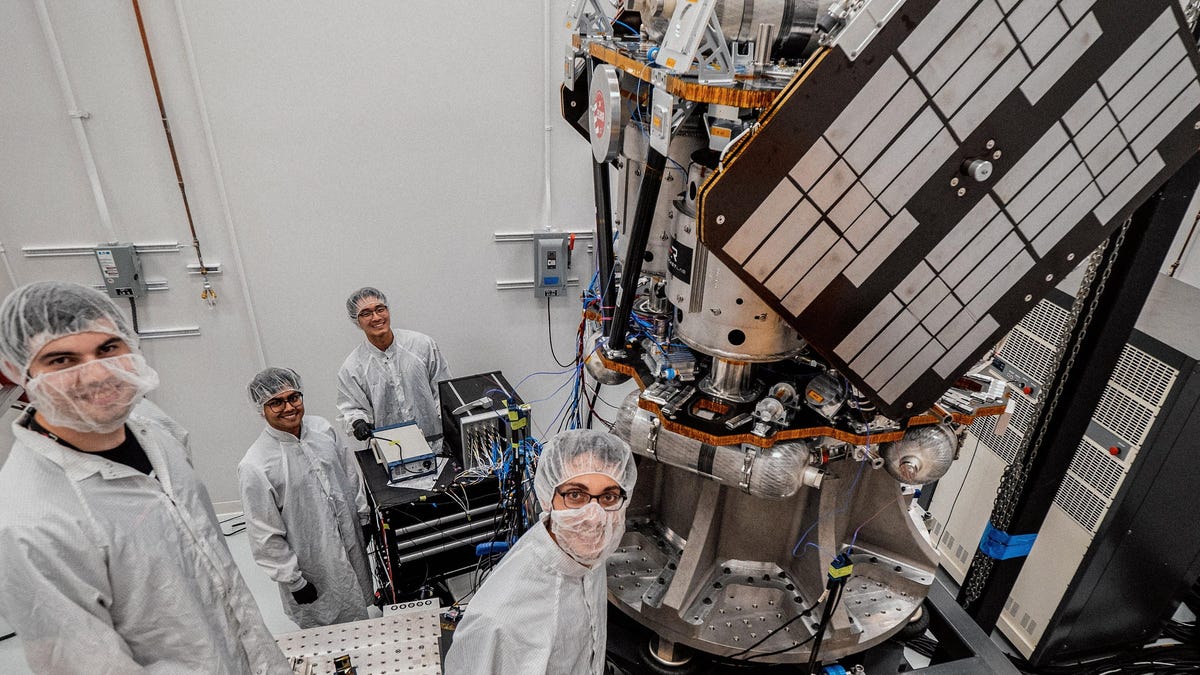
A pair of spacecraft is undergoing final testing before a roughly 230 million mile journey to explore the Red Planet.
This week, Rocket Lab announced that the two spacecraft it is building for NASA’s EscaPADE mission have gone into the system integration phase in preparation for launch in 2024, the company wrote. The dual-spacecraft mission will make its way to Mars to study the planet’s magnetosphere as part of NASA’s Small Innovative Missions for Planetary Exploration (SIMPLEx) program.
Advertisement
The spacecraft have passed their initial System Integration Review (SIR) and technicians are now beginning the process of integrating the flight hardware, whereby the solar arrays, reaction wheels, star trackers, separation systems, radios, and flight software are all integrated with the spacecraft. Other flight instruments are also being delivered from the University of California, Berkeley and other mission partners to Rocket Lab’s Long Beach headquarters, where the integration process is taking place.
Advertisement
“Reaching the flight integration phase for a new spacecraft is a significant milestone, especially for a complex interplanetary mission like this,” Peter Beck, Rocket Lab founder and CEO, said in the company statement.
Advertisement
The integration process will be followed by a test campaign, including vibration, thermal vacuum, and electromagnetic compatibility testing. Rocket Lab also carried out compatibility tests between the spacecraft and NASA’s Deep Space Network, an array of giant radio antennas that the space agency uses to communicate with its interplanetary missions.
EscaPADE, or Escape and Plasma Acceleration and Dynamics Explorers, is designed to probe the processes controlling the structure of Mars’ hybrid magnetosphere and how it guides ion flows, and how energy and momentum are transported from the solar wind through Mars’ magnetosphere, according to NASA. The mission will also explore the processes controlling the flow of energy and matter into and out of the collisional atmosphere. Importantly, the “mission will explore how the solar wind strips atmosphere away from Mars to better understand how its climate has changed over time,” according to Rocket Lab. Once at Mars, the mission is expected to last for around six months.
Advertisement
The mission was originally supposed to launch along with the Psyche mission to a metal-rich asteroid, which lifted off on October 13, but there were issues with the required trajectory. Instead, EscaPADE is now set to launch sometime in 2024 from Cape Canaveral Space Force Station on board Blue Origin’s New Glenn rocket, which has suffered numerous delays.
For more spaceflight in your life, follow us on X (formerly Twitter) and bookmark Gizmodo’s dedicated Spaceflight page.
Services Marketplace – Listings, Bookings & Reviews